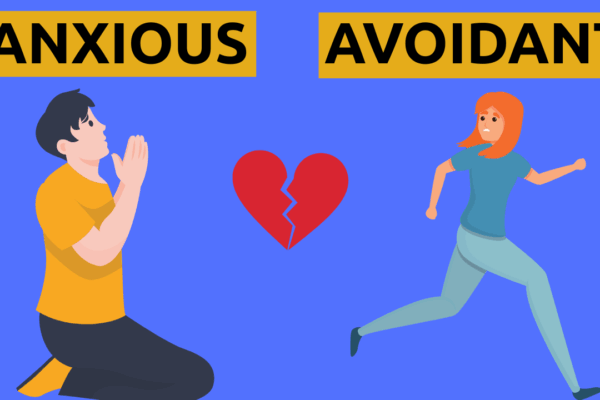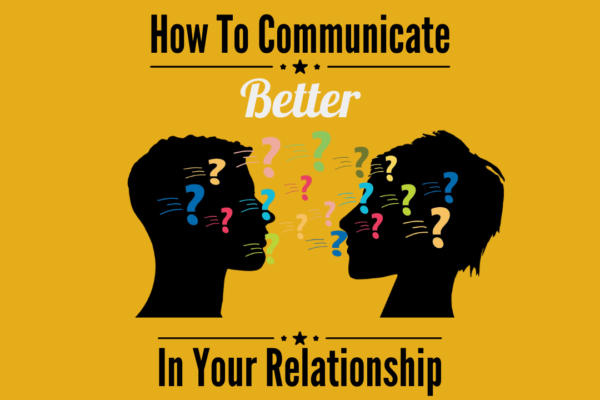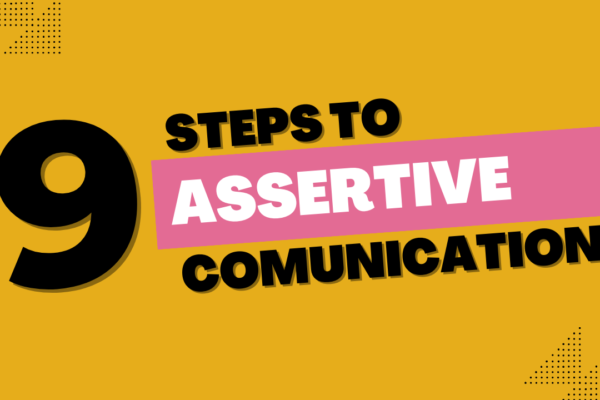Table of Contents
In this post, I will cover:
- What social support is, and what it is not.
- The types of support to consider
- How to map out your social network: Two methods
- How to figure out where to start
- How to get the most out of your existing support system
- How to build your support network
What social support is, and what it is not.
When meeting clients for the first time, I invariably ask them, “where do you get your support from”, and they almost always respond with the first person on whom they are dependent, in the event they are not independent. And so, I find myself providing routine psychoeducation around the difference between environmental support and social support, or rather, moral support.
Social support is the branch of support that nourishes our personal development. It is the support that we voluntarily elicit from others, not out of necessity, but out of our desire to genuinely connect with other human beings in our venture to be understood.
Social Support Defined
Wikipedia defines social support as follows: “Social support is perception and actuality that one is cared for, has assistance available from other people, and most popularly, that one is part of a supportive social network. These supportive resources can be emotional (e.g., nurturance), informational (e.g., advice), or companionship (e.g., sense of belonging); tangible (e.g., financial assistance) or intangible (e.g., personal advice). Social support can be measured as the perception that one has assistance available, the actual received assistance, or the degree to which a person is integrated in a social network. Support can come from many sources, such as family, friends, pets, neighbors, coworkers, organizations, etc.”
You see, it is not enough to have a support network available, one must perceive, or more specifically, acknowledge and accept that support and intentionally adopt and integrate it into their life. It is a proactive measure to elicit social support, participate and reciprocate in it.
Furthermore, as mentioned in the above definition, social support comes in many shapes and sizes, and the better we become at identifying social support in its many facets, the more promptly we can get our needs met once those needs are realized.
These varied types of social support work in concert together to form our support network.
The Meriam Webster defines a support network as: A network of people who provide an individual with practical or emotional support.
Indeed, social support can be pragmatic or strictly validation, and unless we know what kind of support we need in a given moment, we usually gravitate towards the support most accessible, but not necessarily the most advantageous, and this can leave us feeling misunderstood and often frustrated.
Three types of social support to consider.
While there are many categories of social support, there are, in general, three main types of social support, which are as follows:
1. Active:
Active support consists of the types of people, environments and groups that act as a force that propels us towards our stated goals and ambitions. They hold us accountable to our values and keep us just outside our comfort-zone, and in our growth-zone.
Iron sharpens iron: Being a Christian, it was not uncommon for my church family to ask me “what my life verse was”, and in my youth, I never really could quite pinpoint one that defined me. In fact, it was not until I became engaged to my now wife that a verse jumped out at me that made sense, in the most concise way. As I considered my proposal, the passage Proverbs 27:17 came to mind, which states: “As iron sharpens iron, so a man sharpens the countenance of his friend-NKJ.” That is to say, in relationships, the goal and purpose is to build one-another up, to be invested in the personal development of the other. This was so poignant for me, that it is engraved in my wedding ring as a reminder of my role as a husband, to add value to the life of my spouse.
Active social supports builds-up, encourage, challenge, are not afraid of offending (if done with the best of intentions), listens without judgement, and are a good sounding board. They care about your outcomes, believe in your potential, seek understanding, versus blame.
2. Passive:
Passive social supports differs from active supports, in that while they are often well-meaning, they are not invested and likely lack insight into your actual pain-points. This is not because they are dis-concerned, but rather, that they have their own time-constraints and other commitments.
So why do some people rely heavily on passive supports, but very little on active ones?
Because of the proximity rule. You see, people do what they know, and will reach out to those in times of need who are both most familiar, and within their general vicinity. The problem with this, is of course, is that those supports may not be the best adapted to attend to their need, crisis, or concern.
3. Damaging:
Now, while damaging social support types may be a good deal more obvious, it does not mean they are easy to quit.
You see, just like people are likely to turn to passive supports over seeking out active supports (due to the proximity rule), if damaging supports are the most familiar, the convenience of the familiar will often trump the unknown, which is often plagued with its own fears.
Damaging social support groups are ones that disregard risk factors and their impact on you, tempt you into harmful choices (misery loves company), are often manipulative, self-serving, and often outright abusive.
They are dismissive toward your feelings, make you a scapegoat, project their own insecurities onto you, discourage you from your goals (your success makes them feel threatened) and minimize importance of personal development.
Damaging social supports are ones that not only keep you in your comfort zone, they encourage the compiling of problems to an already compact list of unaddressed issues that stunt your personal development and realization of your goals.
How to map out your social network: Two methods
- The interpersonal circle:
- Social Mapping: quadrants and domains.
The interpersonal circle: This is an exercise that allows one to see their social support system from a bird’s eye view. I became aware of this method in my certification training for Interpersonal Psychotherapy for Depression, under its creator Dr. Stuart S. Schultz (IPT Institute). Using this strategy, you would draw three rings with the smallest in the center, like a target. The innermost circle would be the most intimate level of support and you would be at the center. Then, you would plot out names of those in your support network at their various levels of intimacy (how close you feel to them), as they are now, in real time (a snap-shot). Once you have some plotted out, you would then ask yourself, “what would I like to see different in my social support system?” Lastly, you would want to draw an arrow next to each name of which you would like to see a change, flowing in the direction of that change (intimacy). This will provide you with some a visual representation of what you have to build on, and from which you can start taking action to direct your supports for a more robust and supportive environment; you can make choices to make change occur. One last point here, you may want to consider which supports you anticipate will be the most receptive to your interventions.
Social Mapping: quadrants and domains: With this technique, you want to sketch out four or more boxes, and label each with an overarching life supportive domains, such as health, spiritual, emotional and logical. Then, in each domain, you would list names of your supports in their respective box. Now, take note which boxes are being neglected, if any? Then, consider which direction support is flowing, and by that I mean, who are you offering support to versus who is offering you support, is it balanced?
Figuring out where to start
- Make Room: Eliminate damaging social supports; minimize passive social supports.
- Destination + Origin: In order to set goals, first we need to figure out what we are starting with. It can be uncomfortable, and even triggering, but it is vital to take stock of what we are working with before we can set goals. Once we have a good idea of where we are and how we got here, we can start to postulate potential goals (not rigid expectations), that lead to and frame the quality of life that we aspire to.
- Needs assessment: A good place to start is simply listing out the things that we feel are lacking in our lives right now, the things that occupy our mental energies around our discontent, the things we ruminate on. These are often the pragmatic hurdles in our lives, concerning such things as finances, relationship stress, housing, employment, health/fitness/weight loss.
- Low hanging fruit: Once you have conducted a needs assessment, then you want to focus on the mini goals within striking distance. Then, research and identify the types of support that are best suited for helping you execute on those goals with actionable advice.
- Past success/heathy relationships: Success leaves clues. Think about the last time you were pleased with your quality of life, in any capacity. Now, ask yourself, “what did my social support system look like at that time?” While no exact circumstance is the same, we can benefit from reflecting on what has been helpful in the past and see if we can repeat those life rhythms and systems in our current context.
How to get the most out of your existing support system
- Be more intentional with your time: Budget your time like you would your money, thinking ahead about how to prioritize the main things and focusing on quality over quantity.
- Interpersonal circle: Map out your support system as it is now, from a bird’s eye view, and then focus on what you would like to see different and start taking proactive steps in directing the flow and intimacy of your social support network to that end.
- Prime your supports: Educate those in your social support system, tell them how to help you best. People appreciate knowing their role in your life and people generally what to know how they can be supportive, versus having to guess.
- Be Direct. In his book, –Dare To Lead-, Brene Brown states, “To be Clear is to Be Kind.” This is so true and is a principle that is echoed throughout many other works on self-improvement, especially in the area of relationships. Boundaries are about helping others help you show up as your best self; “Let your yes be yes, and your no be no” (Matthew 5:37).
- Know your negotiables and non-negotiables (boundaries). Author Dr. Henry Cloud has created quite the collection of books on this subject alone that are worth adding to your library in order to level-up your skills around securing and maintaining strong social support systems by way of boundary setting.
- Communicate (interpersonal skills). I could, and likely will, create an entire series on this topic alone. If you would like to learn more about interpersonal skills, be sure to check out my previous episode on the subject ( Video HERE:), (BLOG HERE).
- Reciprocate (genuine interest, validation, service).
- Know your triggers.
- Plan ahead for safe coping.
How to build your support network: Tools
- Meetup.com:
- Wikido.com:
- All Trails.com:
- Social-media groups: E.G. Facebook Groups.
- Psychology Today.com: Therapist Finder.
Re-Cap:
- Make room for more active supports
- Map out your support system
- Conduct a needs assessment
- Leverage existing supports
- Create new supports
PUT IT TO PRACTICE!
-Map out your support network
ASK: If you have a question you’d like me to answer here on the blog (even if you think it’s a silly one!), please use the form on the CONTACT ME page, or the comment section below. I would be happy to take a poke at it and provide a long form answer when appropriate.
SHARE: Also, be sure to share it with a friend, as there is still a lot of work to be done in raising mental health awareness.
SUBSCRIBE to get your FREE MOOD TRACKING TOOL and quick Mental Health Hacks in addition to this newsletter. Sign-up with the form below.
NEED CRISIS HELP? If you need immediate crisis help with your depression, you can call the National Suicide Prevention Lifeline at 1-800-273-8255 or text “START” to 741-741
OUTSIDE THE UNITED STATES: See International Suicide Hotlines
WHERE TO FIND MENTAL HEALTH HELP:
-NAMI Referral Helpline: 1-800-950-6264
-California’s Statewide Mental Health Helpline: 1-855-845-7415
The Mental Health Toolbox: Resources and Support for Therapists Seeking Growth & Impact.
Mission Statement: To equip therapists with the tools, knowledge, and strategies they need to enhance their practice, boost their income, and ultimately, improve the lives of their clients. We achieve this through accessible, high-quality content, practical resources, and a supportive community.
admin
Latest posts by admin (see all)
- How to Build a Referral Engine Without the “Hustle”: - January 12, 2026
- ADHD Tips for Therapists | with Dr. Jennifer Dall - May 28, 2025
- Why Therapy Fails Men (And How to Fix It) – Insights with Marc Azoulay - May 11, 2025









